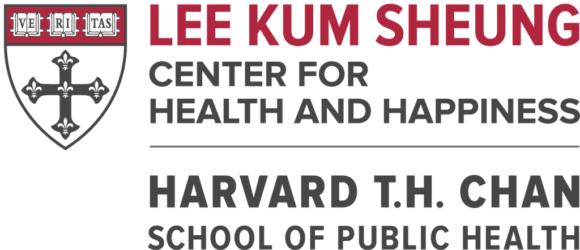Positive emotion is at the core of Dr. Christopher Celano’s project to shift health behavior. Together with Dr. Jeff Huffman and Dr. Susan Murphy, Dr. Celano received seed grant funding through the Center’s Innovations in Positive Health program to develop an adaptive, positive psychology-based text message intervention. The project is the first of its kind to use of positive psychology-based content to encourage health behaviors in patients with type 2 diabetes. In this Research Spotlight, Dr. Celano shares the milestones this project has achieved since its 2019 award date, as well as the possibilities for adaptive interventions in the field of positive health.
An Assistant Professor of Psychiatry at Harvard Medical School and Associate Director of the Cardiac Psychiatry Research Program at Massachusetts General Hospital, Dr. Christopher Celano views psychological well-being as a powerful vehicle to promote health behaviors. “In both patient populations and the general population, well-being is tightly related to physical health,” Dr. Celano said. “Individuals who are more positive are both less likely to develop chronic illnesses and less likely to experience progression of those illnesses. At least some of this relationship appears to be explained by engagement in healthy behaviors, such as physical activity or a healthy diet.”
With seed grant funding from the Center, Dr. Celano is working to develop an algorithm that adapts over time to deliver text messages that encourage physical activity, healthy diet, and self-care in patients with type 2 diabetes. These behaviors are associated with reduced risk of diabetes complications, yet most patients with type 2 diabetes struggle with adherence. According to Dr. Celano, an effective intervention must encourage people to invest in their well-being, but also must be practical to implement. A text message intervention that concurrently targets health education and well-being could meet this need, especially when adapted to individual preference.
In the initial portion of the project, study participants rated the utility of 60 text messages on a scale ranging from 0-10. The second portion of the project involved a single-arm proof-of-concept trial to assess preferences for specific text message types and examine the program’s feasibility, acceptability, and preliminary efficacy. “All of the message types we sent to participants were rated as being helpful, though the ones that focused on diabetes self-care and multiple health behaviors were rated most highly,” Dr. Celano said. “Participants reported preferences for different message types, with each message type being preferred by at least one participant. This suggests that people may differ in the types of messages they prefer, and it highlights the importance of developing programs that deliver content that is tailored to the preferences of individuals.”
As the team prepares their findings for publication, Dr. Celano considers future directions for this work. “First, we are interested in determining whether this type of adaptive text message intervention is helpful in a larger group of individuals,” he said. “Additionally, we would love to develop a program that incorporates contextual information to deliver text messages when they will be most effective.”
Despite the challenges of customizing a positive psychology-based intervention to an individual’s preferences and context, Dr. Celano believes anybody can schedule time for positive emotions. “Our work has some important takeaways for everyone,” Dr. Celano said. “No matter how busy you are, it is important to set aside time to do things that are enjoyable and meaningful, like spending time with your family, reading an enjoyable book, or talking with a friend. This can help you feel more positive, make you more likely to engage in healthy behaviors, and help you stay healthy.”

